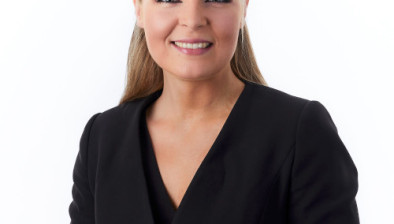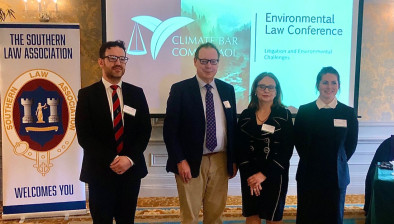High Court: An Bord Pleanála failed to properly consider floodlighting impact on restoration objectives

The High Court has determined that An Bord Pleanála failed to properly consider the potential impact of a school floodlighting development on the conservation objectives of the nearby Bellanagare Bog Special Protection Area for the restoration of the Greenland white-fronted goose.

About this case:
- Citation:[2024] IEHC 318
- Judgment:
- Court:High Court
- Judge:Ms Justice Marguerite Bolger
Delivering judgment for the High Court, Ms Justice Marguerite Bolger stated that the threshold for a stage one assessment is low “but it still must be reached” and that the inspector “was not entitled to simply prefer the views of the notice party’s expert, Dr McLoughlin. This is not a binary exercise of preference or balance between two options, rather it is an exercise of excluding all and any reasonable scientific doubt”.
Background
On 18 January 2022, the respondent granted planning permission for a 21-light floodlighting development at Tarmon National School in Co Roscommon. The development had been completed at the time of the court’s decision.
The applicant, an NGO established to raise awareness of the impact of light pollution, sought an order of certiorari quashing that decision on the basis that the respondent failed to properly assess the impact of the development on the environment and failed to engage with their submissions as to the effect of the development on the Greenland white-fronted goose, a qualifying interest for a Special Protection Area (SPA) at the nearby Bellanagare Bog.
The applicant relied upon an ecological submission that was before the respondent which it said raised a reasonable scientific doubt about the impact on the geese, contending that it did not need to prove evidence of actual impact on the geese.
The respondent asserted that there would be no significant impact on the geese as they had abandoned the site and would avoid areas of artificial illumination in any event. The applicant challenged that conclusion as failing to comply with s.177U of the Planning and Development Act 2000 and Article 6(3) of the Habitats Directive in failing to address the conservation objective of the SPA: “To maintain or restore the favourable conservation condition of the bird species listed as Special Conservation Interests…”
The High Court
Ms Justice Bolger considered the report of the respondent’s inspector, the expert report of Dr Ní Bhroin relied upon by the applicant, and that of the notice party’s expert, Dr McLoughlin. The judge found that it was “common case” that the geese were not currently in situ at the SPA, “but, if anything, that should highlight rather than obviate the need to consider the impact that this development could have on the conservation objective of restoring the qualifying interest”.
Noting the expert evidence that if the geese were to return they would likely avoid the site because of the artificial illumination, the judge found that this could not be consistent with achieving the conservation objective of restoring the geese.
Ms Justice Bolger considered that a proper consideration of the two ecological reports which were available to the respondent’s inspector could not have led to a reasonable conclusion that the development would not adversely impact the qualifying interests of the SPA, emphasising that the finding did not sit comfortably with the requirement of Article 6(3) that:
“Any plan or project not directly connected with or necessary to the management of the site but likely to have a significant effect thereon, either individually or in combination with other plans or projects, shall be subject to appropriate assessment of its implications for the site in view of the site’s conservation objectives… the competent national authorities shall agree to the plan or project only after having ascertained that it will not adversely affect the integrity of the site concerned and, if appropriate, after having obtained the opinion of the general public.”
Contrary to the submissions of the respondent and notice party that the respondent was entitled to prefer one expert to the other as long as reasons were given, the High Court determined that the inspector was not entitled to simply prefer the views of the notice party’s expert, stating that “this is not a binary exercise of preference or balance between two options, rather it is an exercise of excluding all and any reasonable scientific doubt” as outlined in Reid v. An Bord Pleanála [2021] IEHC 362 and in Kelly v. An Bord Pleanála [2019] IEHC 84.
The court observed that a consideration of the impact of a development on the restoration of a species is entirely different to a positive obligation on a developer to contribution to the restoration objective, the latter of which was rejected by the Court of Appeal in People Over Wind v. An Bord Pleanála [2015] IECA 272. The court confirmed that the applicant had not sought to impose such a positive obligation on the respondent or the notice party school, rather it had asked that the respondent would consider the impact of the development on the geese.
Noting that the threshold for a stage one assessment is low “but it still must be reached”, the High Court found the Dr Ní Bhroin to have raised a reasonable scientific doubt that the development could impact the qualifying interest of the SPA and that this was something that required consideration in circumstances where the SPA had not been delisted.
Having regard to the Court of Justice of the European Union which “have made it clear that the departure of a species does not dilute the need for protecting that species”, Ms Justice Bolger determined that Dr Ní Bhroin’s concerns had not been properly considered by the respondent, emphasising the Supreme Court’s reminder in Balz v. ABP [2019] IESC 90 that addressing concerns raised by members of the public is central to public confidence in the planning process.
Stating that the absence of a narrative analysis by the respondent’s inspector was not of concern, the judge opined that her concern was “the failure to properly consider the reasonable scientific doubt that a reasonable expert’s evidence based concerns have raised and the lack of scientific evidence before the Board to facilitate consideration of the positive restoration obligation of the conservation objectives of the Bellanagare Bog SPA”.
Conclusion
Accordingly, the High Court determined that the Board had failed to properly apply Article 6(3) in omitting to carry out any proper or sufficient screening for appropriate assessment in spite of the reasonable doubt raised in respect of the impact on the Bellanagare Bog SPA and failing to consider whether the development would influence the return of the geese to the bog.
The court invited submissions on the appropriate orders to be made in light of the completion of the development.
Dark Sky Roscommon v An Bord Pleanála [2024] IEHC 318









